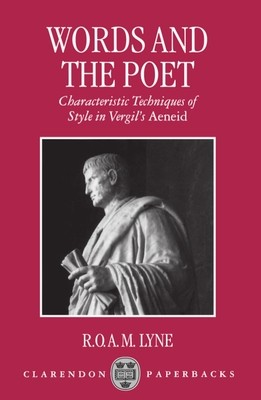
- We will send in 10–14 business days.
- Author: R O a M Lyne
- Publisher: Clarendon Press
- ISBN-10: 0198152612
- ISBN-13: 9780198152613
- Format: 14 x 21.6 x 1.4 cm, softcover
- Language: English
- SAVE -10% with code: EXTRA
Reviews
Description
Throughout his vast literary output, to a surprising extent, Vergil avoided artifacts of poetic diction like archaism and grecism, preferring instead ordinary language that grew from the common stock of the Latin tongue such as colloquialisms and prosaisms. This remarkably coherent and readable study identifies and categorizes such diction in Vergil's writings showing further how such comparatively unpromising material was converted by the poet's methods of "combination" (unctura) into poetry. In a critical analysis, Lyne draws parallels between Horace's procedures in combining works to "make them new," and Vergil's bold combinations which veritably extort unexpected and novel sense.
EXTRA 10 % discount with code: EXTRA
The promotion ends in 19d.22:06:06
The discount code is valid when purchasing from 10 €. Discounts do not stack.
- Author: R O a M Lyne
- Publisher: Clarendon Press
- ISBN-10: 0198152612
- ISBN-13: 9780198152613
- Format: 14 x 21.6 x 1.4 cm, softcover
- Language: English English
Throughout his vast literary output, to a surprising extent, Vergil avoided artifacts of poetic diction like archaism and grecism, preferring instead ordinary language that grew from the common stock of the Latin tongue such as colloquialisms and prosaisms. This remarkably coherent and readable study identifies and categorizes such diction in Vergil's writings showing further how such comparatively unpromising material was converted by the poet's methods of "combination" (unctura) into poetry. In a critical analysis, Lyne draws parallels between Horace's procedures in combining works to "make them new," and Vergil's bold combinations which veritably extort unexpected and novel sense.


Reviews